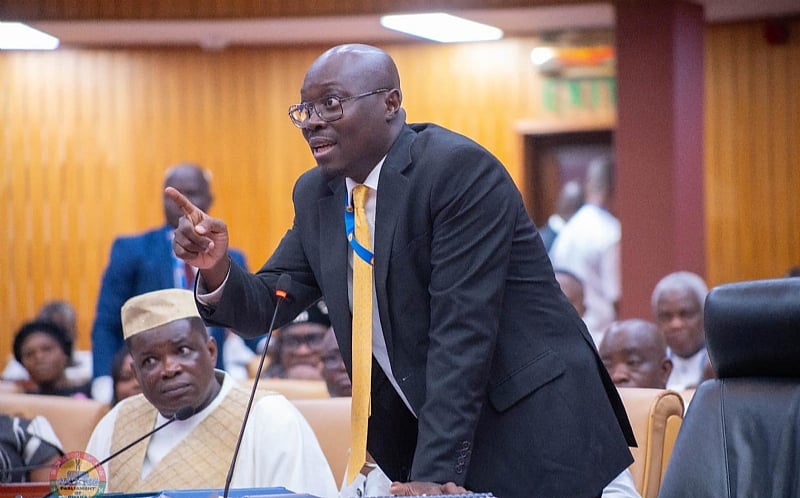The political landscape of Ghana’s Parliament has undergone a notable shift with the announcement that four independent Members of Parliament (MPs) will align themselves with the Majority Caucus. This decision, as revealed by Majority Leader Dr. Cassiel Ato Baah Forson, has the potential to significantly reshape the dynamics of the House and influence the trajectory of legislative processes. While all four MPs have reportedly confirmed their intention to caucus with the majority, the official process of notification and validation is still underway.
Among the four independent MPs, Kwame Asare Obeng, popularly known as A Plus, representing Gomoa Central, has taken the lead by formally communicating his decision to the Majority Caucus. The remaining three MPs – Ohene Kwame Frimpong (Asante Akim North), Nandaya Yaw Stanley (Wulensi), and Worlasi Kpeli (Afram Plains North) – are expected to follow suit by officially notifying both the Majority Caucus and the Speaker of Parliament, Alban Bagbin. This formal notification is a crucial step in solidifying the MPs’ alignment and ensuring its recognition within the parliamentary framework.
The Majority Leader’s announcement underscores the significance of this development, highlighting the anticipation of formal letters from all four MPs. Dr. Forson’s statement on the floor of the House emphasizes the procedural aspect of the alignment, indicating that while verbal confirmations have been received, the official written communication is necessary for parliamentary record and validation. This meticulous approach underscores the importance of adhering to parliamentary procedures and ensuring transparency in the process.
The decision of these independent MPs to align with the Majority Caucus carries substantial weight in the parliamentary arena. This realignment can potentially alter the balance of power within the House, particularly in situations where votes are closely contested. The increased numerical strength provided by these four MPs could prove decisive in the passage of key legislation, budget approvals, and other critical parliamentary decisions. This shift in the parliamentary landscape could also influence the dynamics of debates, impacting the tone and direction of discussions on important national issues.
The implications of this realignment extend beyond the immediate legislative processes. It could potentially impact the stability of the government and its ability to effectively implement its agenda. A stronger majority caucus provides a more solid foundation for the government to push through its policies and initiatives, potentially leading to a more streamlined and efficient legislative process. Conversely, it could also heighten political tensions and create a more polarized environment within the House, as the opposition may perceive this alignment as a strategic maneuver to consolidate power.
Furthermore, this development could have broader political ramifications, potentially influencing future electoral outcomes and the overall political landscape of Ghana. The alignment of independent MPs with a particular caucus could signal shifting political allegiances and potentially impact voter perceptions. It could also serve as a precedent for future independent candidates, influencing their decisions on whether to remain independent or align with established political parties. The long-term consequences of this realignment will unfold over time, shaping the dynamics of Ghana’s political landscape and influencing the direction of its governance. This shift underscores the fluid nature of political alliances and the ongoing evolution of Ghana’s parliamentary democracy.














